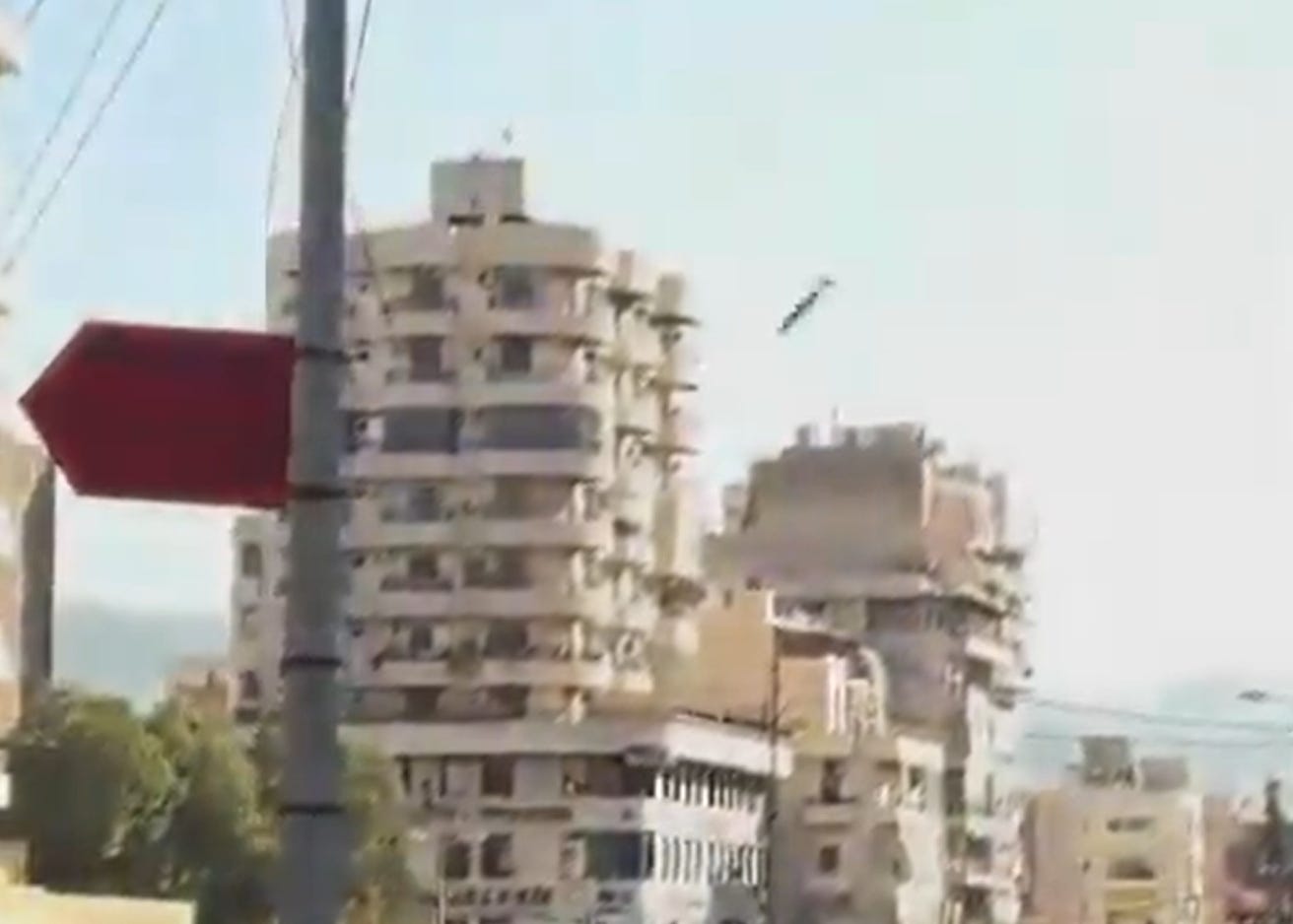Israel is on the road to victory
Hezbollah's falling rate of rocket fire and continuing Israeli advances show that the group is losing the war, and the same is true of Hamas in Gaza.
Commercial Summary: Hezbollah and Hamas are losing the war, threatening Iran’s stability. Israel is unlikely to seek a ceasefire, though it is negotiating one to humour the Biden administration. Trump will likely keep escalating against Iran until he gets a deal or a war. Iran’s red line will always be Iraq.
Hezbollah is losing the war and political support in Lebanon. Its rate of missile fire is falling, something unseen at this scale in the 2006, 1996 and 1993 wars. It is focusing its missile strikes on Israeli forces within Lebanese territories, though continuing with some strikes deep into Israel. Neither tactic is forcing Israel to halt its ground advances or airstrikes.
Either Hezbollah gives up its weapons as part of a US deal with Iran (or Russia and Syria), or Lebanon turns into a completely failed state approaching civil war, and facing a severe risk of full international sanctions.
Hezbollah’s domestic allies have, for the most part, turned on it. They do not want it to rearm and are turning openly hostile to Iran, but are not willing to fight the group. Hezbollah can only bring them back in line through extreme violence.

Hezbollah is unlikely to be able to spin a victory narrative after this war if Israel utilises the same tactics it is using in Gaza. This would change if Israel remained indefinitely in a low-level war of attrition.
Israel is succeeding in depopulating northern Gaza with the purpose of settling it in the near future. This would create a decisive victory against Hamas: it launched the 7 October attack, and as a consequence it lost half of Gaza’s territory. Although Hamas would survive, it would be severely weakened and there would be no way to present this as a victory.
Economically, the Israeli GDP is recovering, albeit with difficulties. Foreign reserves continue to increase. The debt to GDP ratio is increasing but remains extremely manageable by European standards (likely around 65%-70% of GDP by end of 2024).
Hezbollah’s bet on wearing Israel down is not paying off. Israel has been able to turn around what the group hoped would be a long war of attrition against Israel, into an war that attrits Hezbollah.
We will issue a piece reviewing what we got wrong. We will examine why, even though we expected this war, we did not expect Israel to turn it in its favour so successfully, and what this shift means.
Outlook
Israel is only likely to accept a ceasefire - in Gaza or in Lebanon - if its losses become unsustainable, and that is currently not the case. Israelis losses are relatively high, but not unsustainably or unacceptably so, given that Israel sees this as an existential, generational war.
Keep reading with a 7-day free trial
Subscribe to Modad Geopolitics to keep reading this post and get 7 days of free access to the full post archives.



